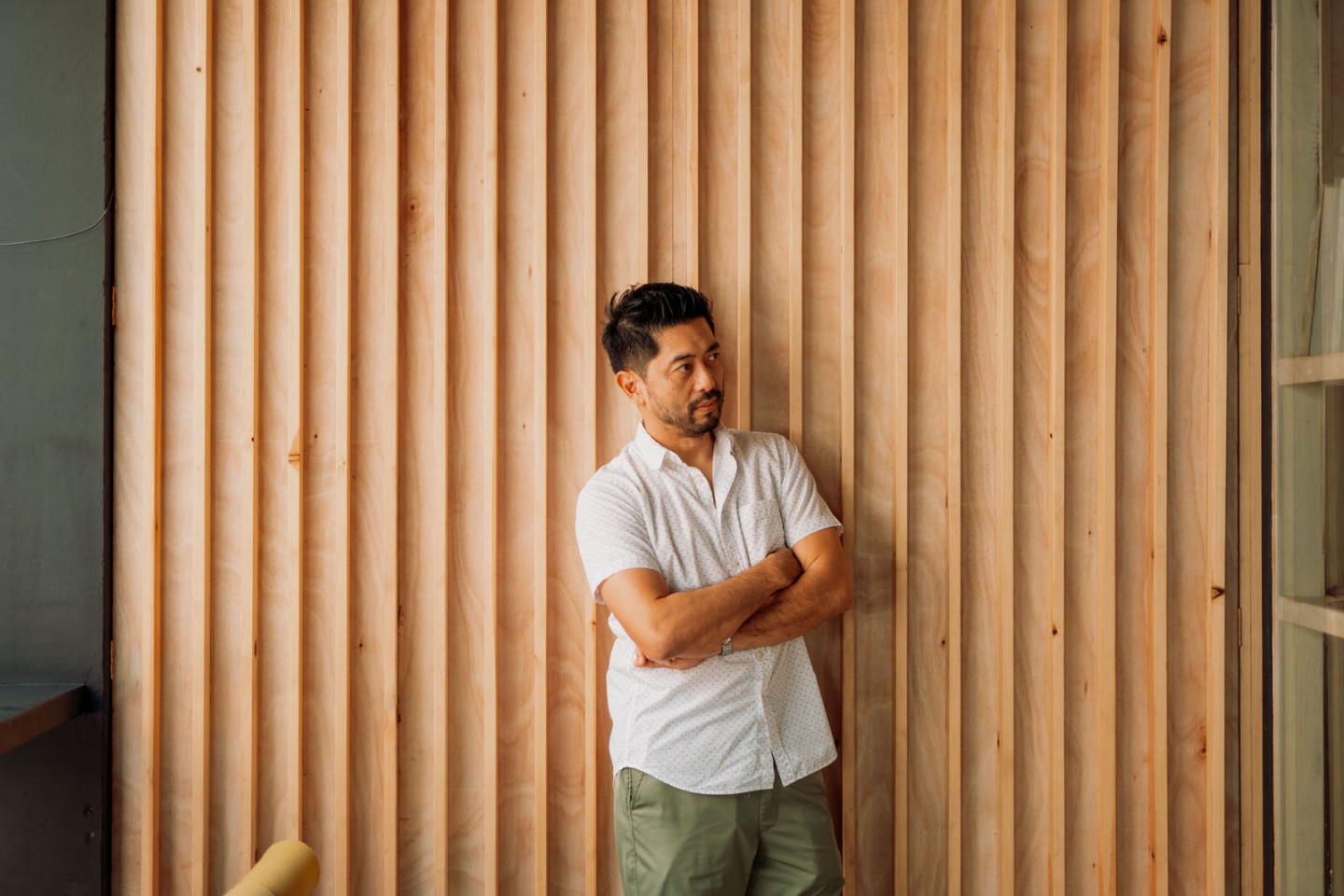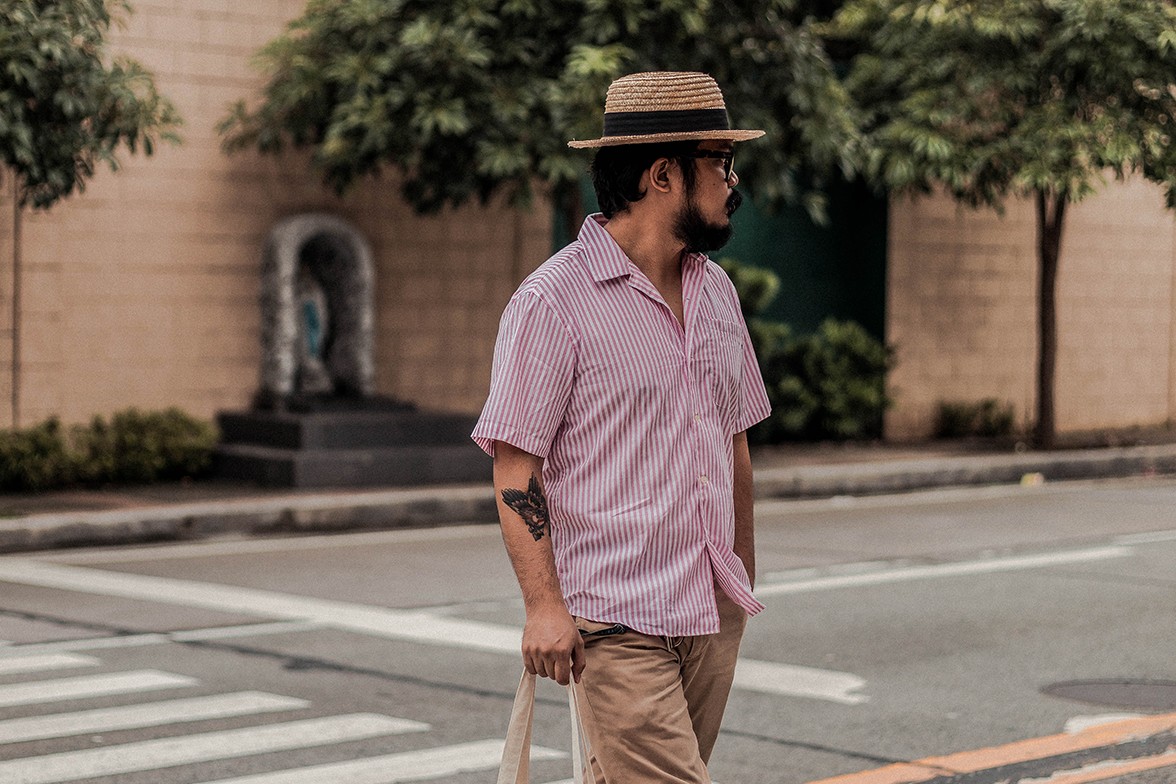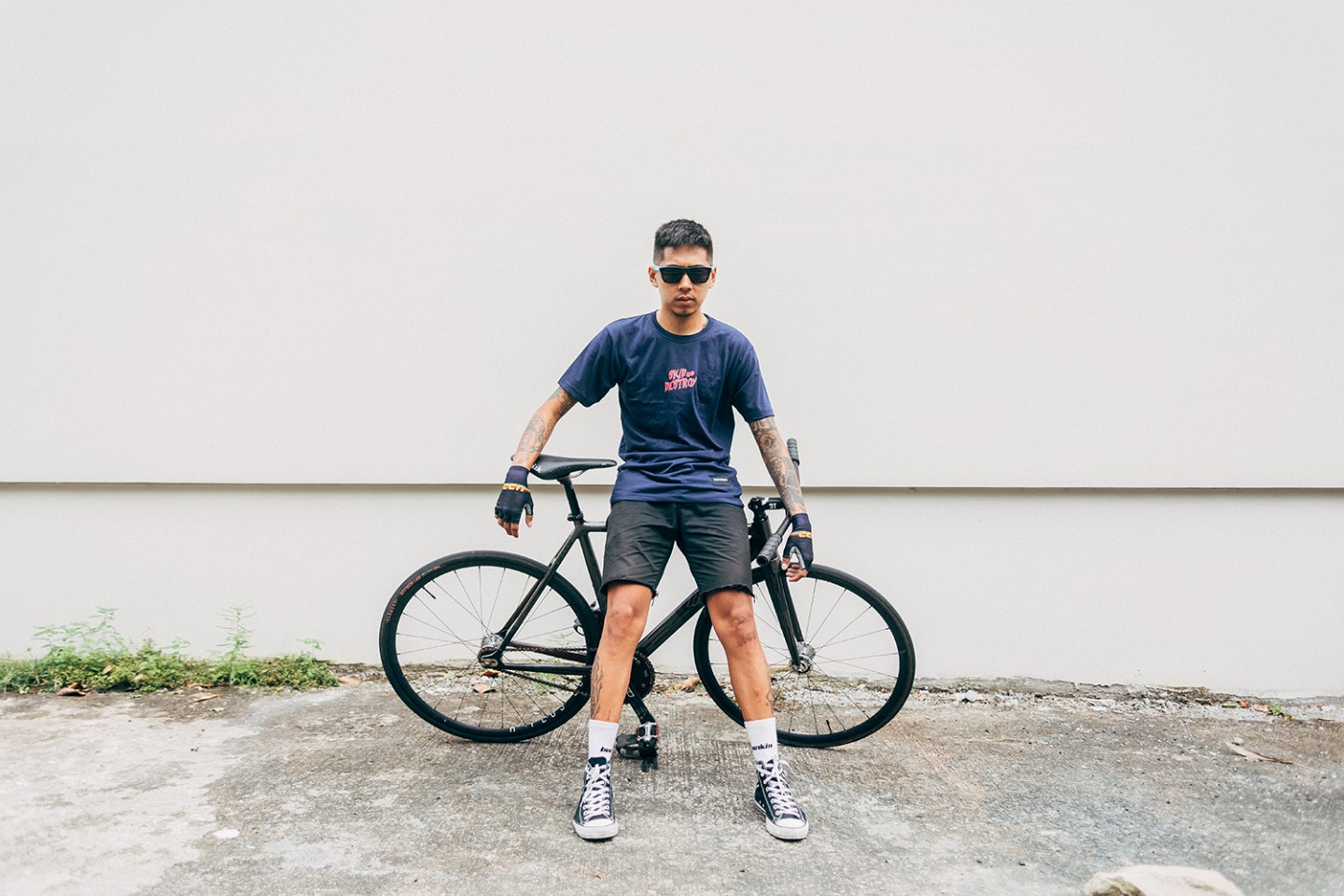
A good hearty laugh is always good to have these days. After all, who doesn’t want a breather from a stream of stressful news or a tiresome workload? The best part is how these can come from different sources — be it that incredibly nonsensical thing a friend didn’t say or do on purpose, or perhaps an inside joke shared. But how about that unrestrained belly laugh that more often than not, only comedy can muster? There’s an art to everything and being a comic is actually one of them.
Funnyman Tim Tayag got his start on the comedy standup circuit back in 1997 when he was still living in the States. His body of work had always consisted of the straightforward less-flamboyant kind, and it was in 2002 that he decided to come back to the Philippines to try his luck. “I wasn’t sure it was gonna work. I was actually the first to perform standup here,” he ponders.
Photos — Zaldine Alvaro Location — OTO
The uncertainty was valid, especially when you had veterans like Jon Santos and Willie Nepumoceno doing hit impersonations. Especially when this was the time when queer performers singing in bars were all the rage, all in the name of Pinoy humor. Techniques like overt facial expressions, exaggeration, the use of sound effects, imitation of famous personalities, and slapstick defined Philippine stand up humor in the 2000’s—a stark departure from what Tim had.
What Tim had up his sleeves was the complete opposite of the tried and tested, “Just like doing straight standup, standing there and just sharing your story. It was a risk, but it worked. Then right after, Rex Navarette came in on the scene, and then it continued.”
A couple of years down the road, Tim co-founded a talent circle dedicated to aspiring comic artists. Aptly called Comedy Cartel, the guild held high regard for various comedic disciplines, with their pioneering observational point-of-view standup comedy at the forefront. Since then, the group has evolved from performing regularly at different venues and private shows to a slightly different dynamic, with more spin-offs and collaborations (i.e. “Insanithink” — a brand of smart comedy co-branded with the guild).

The funnyman credits the comedians he would look up to for inspiration, from Jerry Seinfeild and Ray Romano to the likes of Hannibal Buress — and it shows. Back then, his standup stints would mostly consist of material that speaks of the absurdities he encounters daily (like that one time a Pinoy relative attests to speaking only English after just a few weeks in the States, only to slip with ‘hatdug’ and ‘supdrink’) from living abroad to his stories of growing up in the Philippines. Compare this to his present material and you would see how his jokes have evolved with time. He has since become the unofficial spokesman for doting Pinoy fathers and husbands everywhere, with sketches dedicated to parenting (from Dadvice like ‘How To Talk To Your Teen’s Suitors’ to Dadviews of the latest toy out there) and “commander-in-chief” jokes.
Tim makes sure to observe one unspoken rule that he has followed since day one. “Never steal jokes. I mean sure, sometimes, you have similar ideas but to outright steal it is a no-no.” As far as material sensitivity is concerned, he advises to tread potentially offensive topics with care. He muses, “I think the more sensitive the topic is, the more experienced the comedian should be. Otherwise, it might just be offensive. Although nowadays, everybody gets offended.” I couldn’t help but agree, especially when everyone thinks they’re being personally attacked. These days, nobody just couldn’t take anything sitting down.
For his part, he’s had his share of memorable experiences while performing on stage, from a grandma who he apparently put to sleep, to getting sick gradually on stage, to even getting paid for two private sets in a row minus the attentive audience. Whatever the case though, he would always find a way to soldier on. Indeed, as a comic, it pays to be a keen observer and ad-lib as you go along.
More than two decades in the industry of funny both behind the scenes and under the spotlight, the veteran sees the good and the bad in Philippine comedy. While it is fine and thriving in a general sense, he thinks that mainstream comedy has yet to evolve. “I used to find the ‘acheche’ types of jokes funny when I was younger but now, they still use the same kind of Grade 5 or Grade 6 humor. But you can’t really blame them either because it works,” he punctuates. When it comes to live standup comedy, his frustration becomes even more apparent, “JoKoy is a kind of a rarity where people would really pay to watch, but it’s still a challenge for people to come out and watch the local standup scene here.”


At the end of the day, what is it really that makes funny funny? For Tito Tim, it’s about two things: relatability and pain. He adds that the best kinds of comedy are the ones that go beyond the factor of the gregarious laughter one can muster from a crowd. It’s the ability to enlighten and tick that light bulb in one’s head for that eureka moment.
Sure, we might still have a long way to go in the industry of funny, but I’d like to argue that there are still local comedians like Tim Tayag who hold the torch for what makes Pinoy comedy world-class. It’s definitely not a lost cause.






